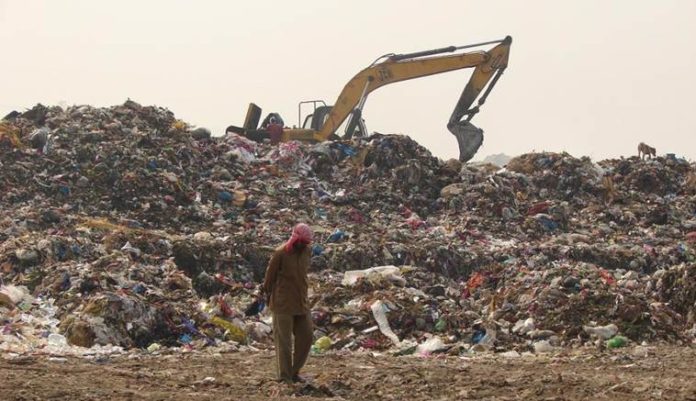New Delhi (NVI): The Central Mechanical Engineering Research Institute (CMERI) under Council of Scientific and Industrial Research (CSIR) has developed a Municipal Solid Waste Processing Facility that has helped in achieving decentralised decimation of solid wastes.
The facility has also helped create value-added end-products from abundantly available redundant stuffs such as dry leaves, dry grass etc, the Ministry of Science & Technology said in a statement.
The #Municipal Solid #waste Tech of CSIR – CMERI provides a sustainable & effective Solution & model for Zero #landfill , #zerowaste #cities @Secretary_MoHUA @HUDDeptOdisha @GujUDDept @nagarvikasup @Dohup_UP @mpurbandeptt @rashmisinghIAS @pallavabagla @sghstory @PriyankaPulla https://t.co/LtB5bJd97O
— CSIR-CMERI (@CSIR_CMERI) October 18, 2020
The primary focus of CSIR-CMERI is to unburden the common households from the segregation responsibilities through advanced segregation techniques. The bio-digestion process adopted has minimum pollution factor.
The MSW facility has been equipped with special capabilities to deal with a diverse range of waste including masks, sanitary napkins, diapers etc. The MSW facility has been with special disinfection capabilities to help break the COVID chain through UV-C lights and hot-air convection methods.
To throw more light on the subject, Prof. (Dr.) Harish Hirani, Director, CSIR-CMERI, Durgapur, deliberated on the issue in his keynote address at programme ‘KrishiJagran’, live-streamed on its Facebook page yesterday. He charted out the historical development of traditional waste processing techniques and demonstrated how the present scenario demands special customized attention towards the processing of Municipal Solid Wastes.
“We have also achieved optimum Energy Sufficiency in the MSW facility by adding the Solar energy technology, which can also feed the surplus Energy Supply onto a Mini-Grid,” Hirani said.
Prof. Hirani said that “ineffective processing of wastes are the root of all diseases as the dumped landfills become the contamination hubs for pathogens, bacteria and viruses. Besides, they also become the cauldron for the emission of methane gas, especially during the churning mechanisms deployed during composting processes. Composting also does not yield impactful economic returns for the entrepreneurs. The mixed nature of wastes in the current scenario can easily lead to infiltration of heavy metals into agricultural produce, through the indiscriminate creation of Composts.”
“Decentralised Waste Management technology developed by CSIR-CMERI can result in drastic reduction of expenditure related to Transportation Logistics and can help reductions in CO2 emissions, by reducing fossil fuel usage. The Scientifically Decentralised Waste Processing Hubs will help multiply outreach for various locations and will also boost the manufacturing potential for the residents of the region.
“This CSIR-CMERI MSW Technology envisions a Zero-Landfill and a Zero Waste City in addition to developing Job-Creation opportunities. This technology will also help create a revived Green Energy reliant India,” Prof Hirani said.
The Institute developed Solid Waste Disposal using Plasma Arc converting wastes into plasma state for proper disposal. The residues generated having good carbon content are used in agriculture as fertilizer and non-usable are utilized to make bricks for construction purposes. Thus, it is creating wealth out of wastes through use of science. The technology pertains to the period 2013-16 and has some cost constraints.
-ARK








